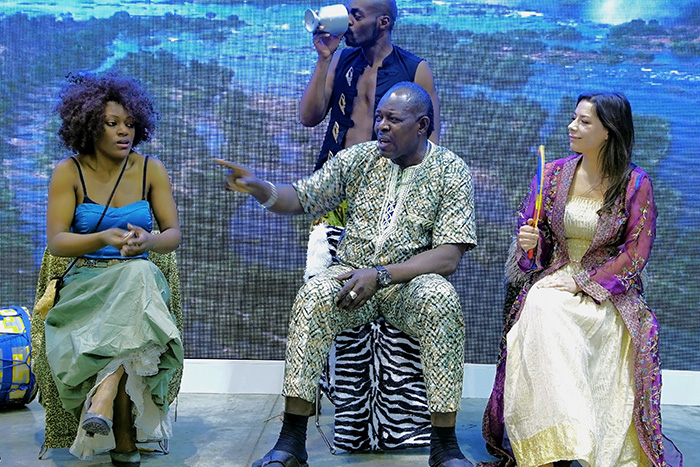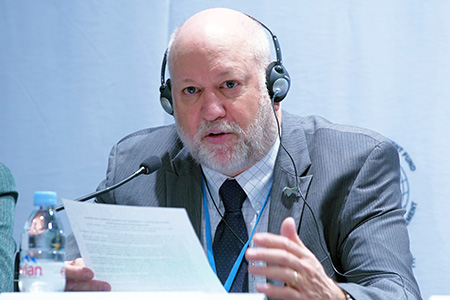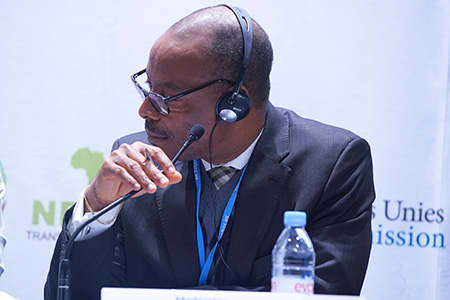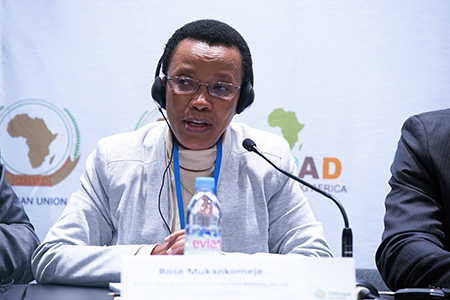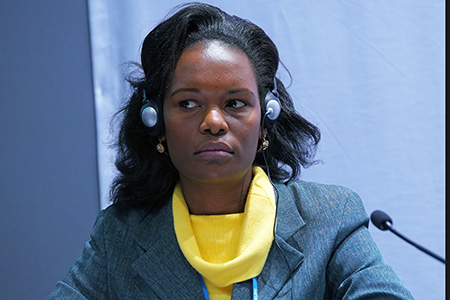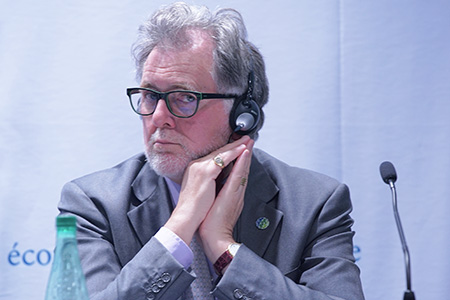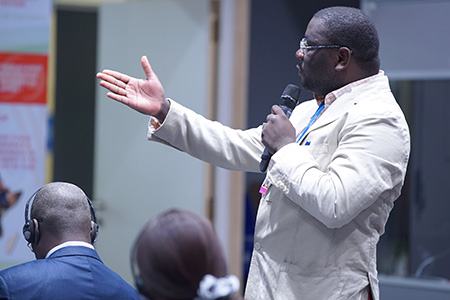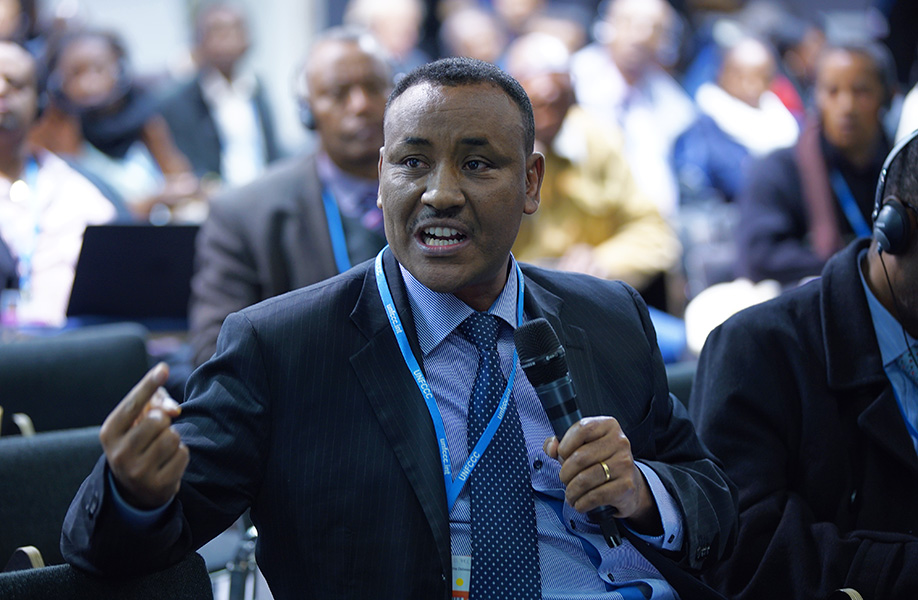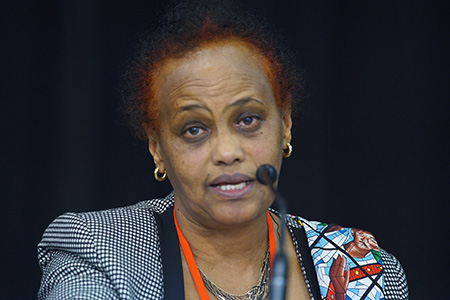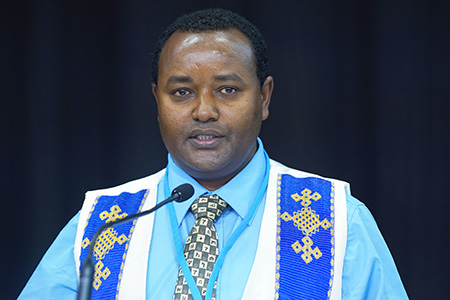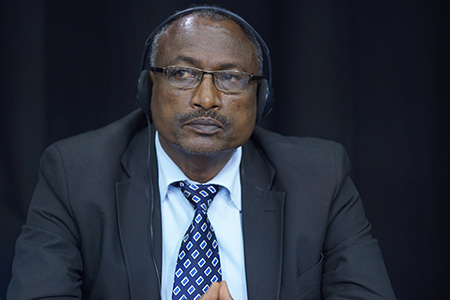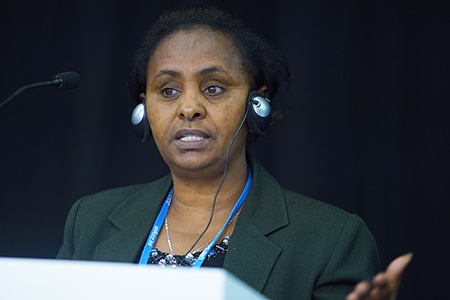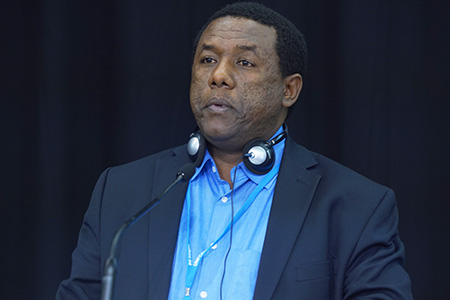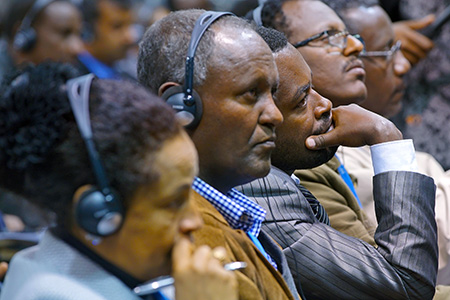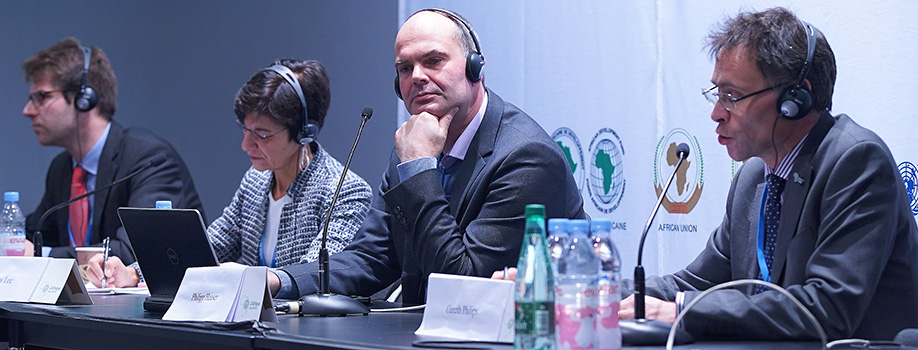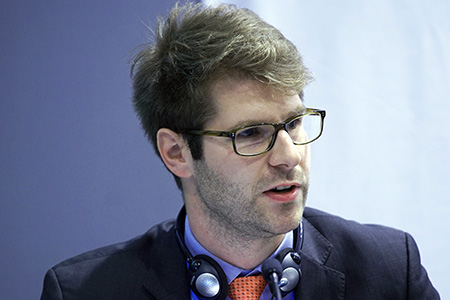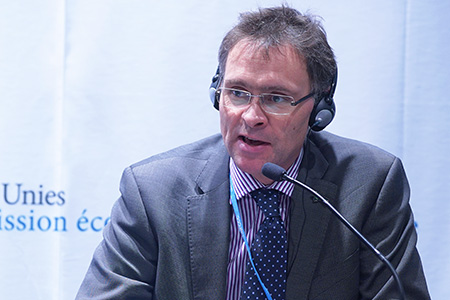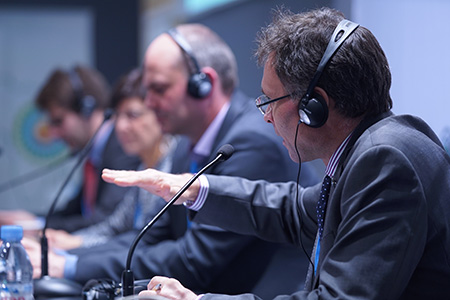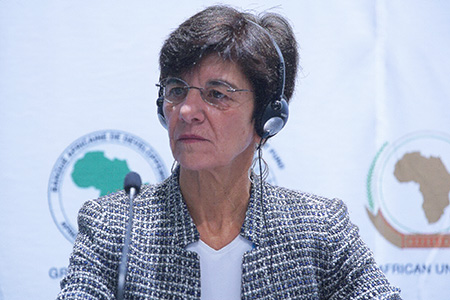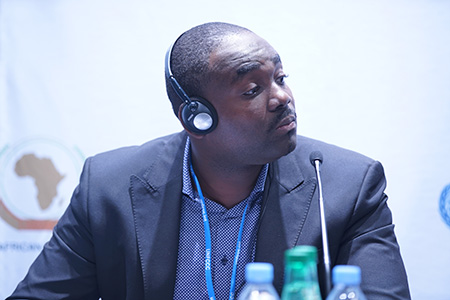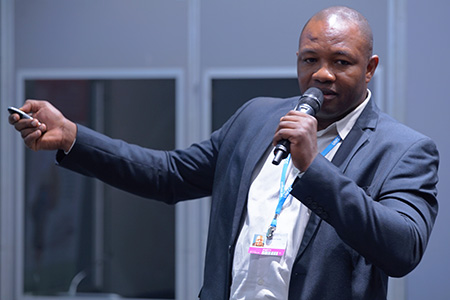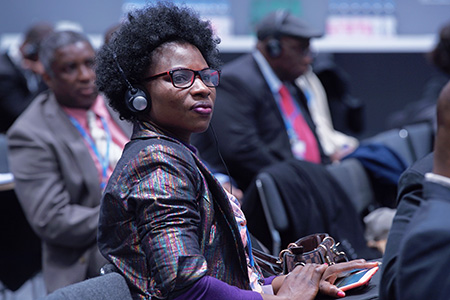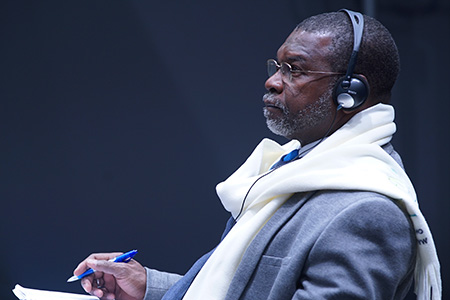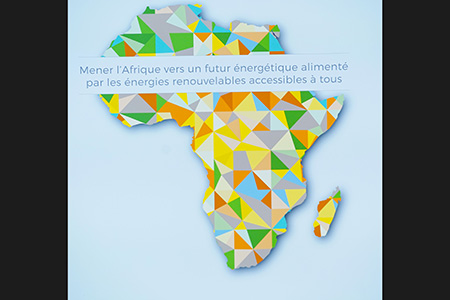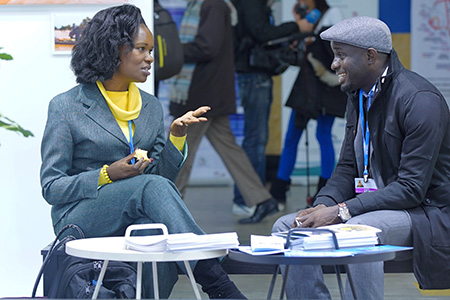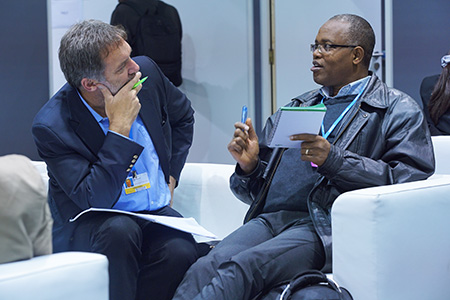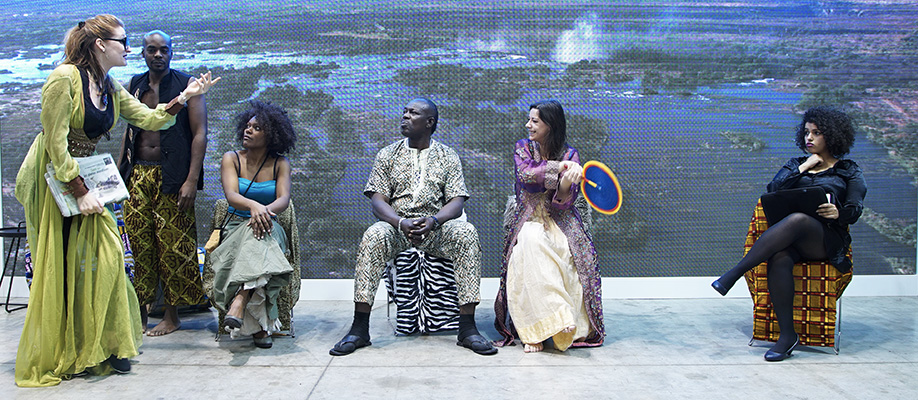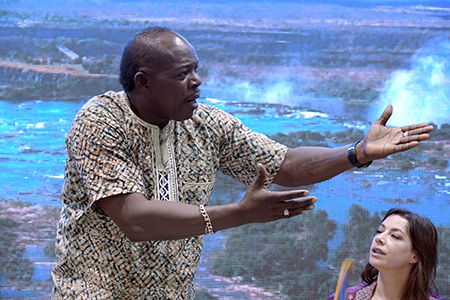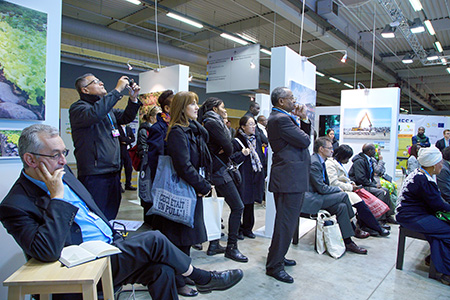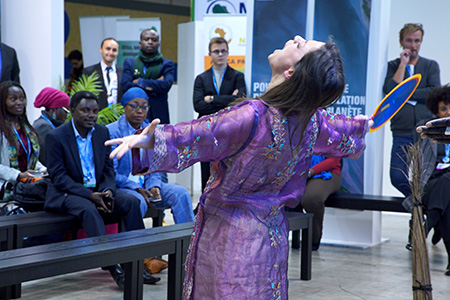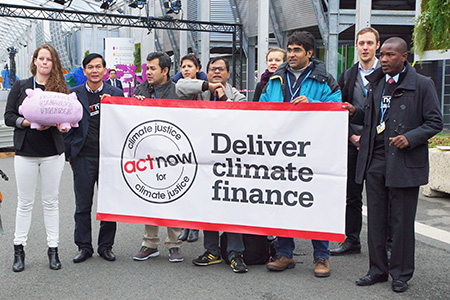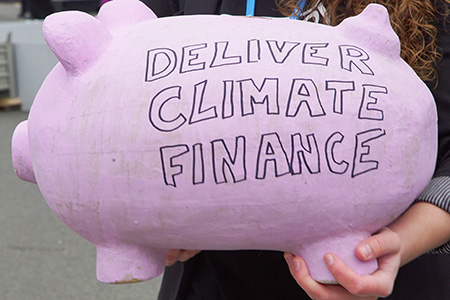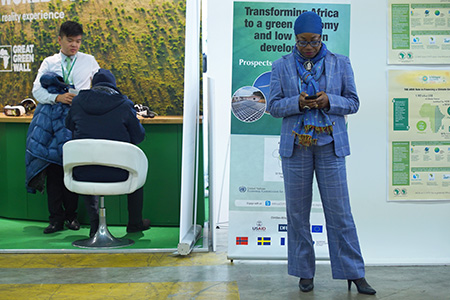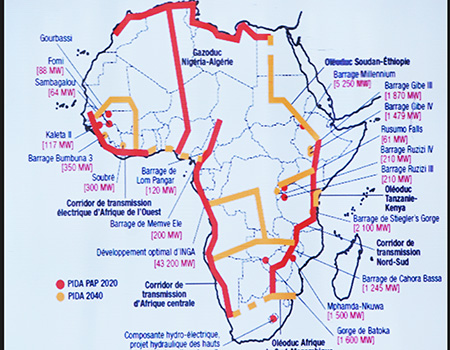|
During this session panelists discussed various readiness initiatives that are in place to allow African countries to access climate finance. Panelists discussed climate finance from both the user and provider perspectives with an emphasis on preparing for accreditation to climate financing mechanisms. Organized by AfDB, the panel included representatives of multilateral development banks, bilateral partners and the climate finance funds themselves.
Anthony Nyong, Manager, Compliance and Safeguards Division, AfDB, moderated the session. He began by asking “how ready are African nations to access climate finance?” He noted the high fiduciary standards required for countries to access the Green Climate Fund (GCF) as well as the environmental and social safeguards that must be in place. He said the GCF is the fund that “everyone is looking up to,” and it is important that all countries have a feeling they can participate.
David Craig, Senior Advisor, GCF, described the GCF’s readiness program that helps establish the institutional arrangements needed to coordinate and mainstream climate finance activities. The GCF has received about US$10 billion in pledges, he said, and it has already signed up US$6 billion in contribution agreements. He noted the GCF board has already approved a first round of eight projects at a cost of approximately $168 million, but that the aim is to contribute up to US$2 billion per year. The question, he said, is how to reach that goal. He underscored that currently just 10% of all climate finance globally goes to adaptation but that the GCF has set a target of providing 50% of funds for adaptation.
Axel Olearius, Director, Climate Policy Support Programme, Deutsche Gesellschaft für Internationale Zusammenarbeit (GIZ), discussed climate finance from the bilateral angle and underscored the challenge of developing bankable projects and the complexity of the finance landscape. GIZ primarily works bilaterally, he said, and its core task is capacity building for climate finance readiness in the areas of: strategic planning and policy development; strengthening institutions and financial governance; effective and transparent spending and implementation; and promoting private sector engagement.
Kurt Lonsway, Manager, Environment and Climate Change, AfDB, highlighted the Africa Climate Change Fund (ACCF) established with a grant of US$4.75 million from Germany. The fund was extremely popular, he said, with more than 350 proposals submitted in order to advance climate finance readiness. This high level of interest demonstrated by the number of proposals underscores the demand for climate finance readiness support, he said.
Rose Mukankomeje, Director General, Rwanda Environment Management Authority, framed her remarks by noting, “you don’t get what you deserve, you get what you negotiate.” She said readiness is about direct access to funds for countries affected by climate change but there is a paradox: “we can’t access climate finance if we aren’t ready, but how can we be ready if we can’t access finance?” She said accreditation requires careful planning that includes all stakeholders.
Phyllis Ombonyo, Director of Business Development, NETFUND, Kenya, discussed the importance of national climate change legislation such as Kenya’s plan to create both a directorate and a climate change council to be chaired by the president. She said the directorate will identify priorities and mobilize resources. She described Kenya’s path to accessing the ACCF.
During the discussion, panelists responded to questions on: resistance to lending to the private sector; the balance between funding for adaptation and mitigation; civil society participation in the implementation of funds; and the prescriptive nature of GCF readiness support. David Craig said the GCF has an “excellent governing instrument” that is built on country ownership and has no limits on the type of institutions that can receive finance. Kurt Lonsway said AfDB provides direct access and is a wholly African institution but that access to all types of finance will come with some criteria. Rose Mukankomeje said there have been many activities aimed at building capacity for accreditation but that it is important to consider the next steps after accreditation as well. Phyllis Ombonyo said readiness activities include monitoring and reporting and that the definition of such activities is evolving because activities that are eligible for climate finance can change over time. Anthony Nyong closed by saying there is no reason any African institution cannot access climate finance and that the AfDB stands ready to help. |
|


